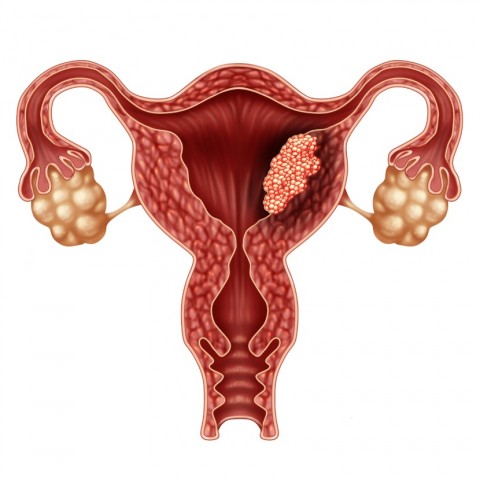DrCarney.com Blog
Red Meat May Increase Endometrial Cancer Risk
Red meat is one of the most highly consumed foods worldwide. In the United States, the average American man eats roughly 6.9 oz of meat per day and woman consumes about 4.4 oz daily. The delicious (or not) taste and nutrients, such as proteins, iron, magnesium, zinc, niacin, selenium, riboflavin, and B-vitamins that meat supplies the body have been valued by many people for centuries, especially all that protein. However, several studies have demonstrated that red meat consumption can elevate the risk of developing many diseases, including cancer, stroke, diabetes, and heart diseases.
The findings of a 2007 study published in the Journal of Cancer Causes and Control found a positive association between consumption of red meat and elevated endometrial cancer risk. In this study, researchers from The Cancer Institute of New Jersey analyzed data from eligible studies that examined the link between red meat intake and endometrial cancer risk. The team of investigators discovered that women who consumed more than 100 grams of meat per day had high chances of having endometrial cancer. Another study that reviewed 5,415 cases of endometrial cancer found out that generous consumption of red meat was associated with increased endometrial cancer risk.
Endometrial cancer begins in the lining (endometrium) of the uterus (womb) and has the ability to spread to other parts of the body. Researchers have theorized that high dietary exposure to heme iron may contribute positively to development of endometrial cancer. Heme iron is predominantly found in red meat. Increased dietary exposure to heme iron via high dietary ingestion of red meat can stimulate the mutation of normal cells in the endometrium into cancerous cells and tumors, thereby increasing the risk of developing endometrial cancer.
Endometrial cancer is the most common female genital cancer in the United States. More than twice the amount of endometrial cancers will be diagnosed this year compared to all cervical and ovarian cancers combined, according to the NCI (National Cancer Institute). This year, over 60,000 US women will be told that they have endometrial cancer and more than 11,000 women are expected to die from this female genital cancer. For women wishing to avoid endometrial cancer, avoiding red meat makes sense to help reduce their risk of developing and eventually dying from endometrial cancer.
Additional Information:
(1) The United States Meat Industry at a Glance
(2) Red Meat Intake and the Risk of Endometrial Cancer: Meta-Analysis of Observational Studies
(3) American Cancer Society: Key Statistics for Endometrial Cancer
Scroll Down Page to Leave Comments

Want to Make Lifestyle Changes?
Not sure how to start? The good news is that Help is Only a Click Away! We invite you to join Dr. Carney's Helpful Sharing Community.
Preview the "Cancer Prevention & Women's Health" Trailer
Survive and Thrive: Which common (but seemingly unrelated) factors link many health problems together, including cancer and other women's health issues? Is cancer preventable? This DVD shows you which disease risks are worsened by excess estrogen, which you create in your body by choices in foods and beverages. Banish multiple health problems with the Starch-Smart® System.
When you subscribe to the blog, we will send you an e-mail when there are new updates on the site so you wouldn't miss them.




